Resources
Explore the resources each agency has developed across a range of topic areas to guide and support your work in linking education and the workforce and spurring the state’s economy.
Career and Technical Education (CTE)
Lead Agency: Texas Education Agency
This site provides you with information on the Texas Education Agency’s curriculum, programs, rules, and other information for CTE.
Lead Agency: Texas Higher Education Coordinating Board
This page provides current information on the Texas Higher Education Coordinating Board’s efforts to implement the Carl D. Perkins CTE Act.
Lead Agency: Texas Workforce Commission
Texas Labor Code Chapter 301.0611 requires the Texas Workforce Commission to work with the Texas Education Agency, Texas Higher Education Coordinating Board, and the Texas Comptroller of Public Accounts to prepare and make available to the public a list of all available awards and incentives for business participation in a school district’s CTE programs and other CTE training. Follow the link below to view grant opportunities from each agency.
Credentials
Lead Agency: Texas Education Agency
Industry-based certifications are a valuable component of strong student pathways.
TEC Section 39.053 requires the Texas Education Agency to account for high school students who earn an industry-based certification (IBC) as one indicator within the student achievement domain of the state’s public school accountability system. The purpose of the IBC list is to identify certifications that prepare students for success in the workforce, military, or postsecondary education.
Lead Agency: Texas Workforce Commission
Texas Labor Code Chapter 312 establishes the Industry-Based Certification Advisory Council. The council is composed of members who represent industry, career and technical education within public schools, and postsecondary education within public junior and state colleges and public technical institutes.
While the Texas Workforce Commission’s list of industry-recognized credentials may be used to provide additional opportunities to meet the educational and career goals of students, only the Texas Education Agency’s Industry-Based Certification List for Public School Accountability, with aligned certifying entities, may be reported through the Texas Student Data System (TSDS) Public Education Information Management System (PEIMS) and count toward the College, Career, and Military Readiness (CCMR) calculations for accountability and for reimbursement requests.
Data Systems
The Tri-Agency developed a model data sharing agreement to provide a standardized framework for K-12 schools, higher education institutions (public and private), and workforce entities when sharing data. This agreement is designed to:
- Facilitate secure and efficient data exchange under the Family Educational Rights and Privacy Act (FERPA) while upholding privacy protections.
- Enable partners to leverage student data to improve educational and workforce outcomes.
- Provide a straightforward and adaptable template for initiating agreements, ensuring compliance with legal and ethical data governance standards.
By modernizing data infrastructure and streamlining governance, the Tri-Agency is committed to enhancing data-driven decision-making across Texas’ education and workforce systems.
Dual Credit
Lead Agency: Texas Higher Education Coordinating Board
The FAST program provides funding to participating public institutions of higher education so they can offer dual credit courses to educationally disadvantaged students at no cost to these students.
Check the FAST page for funding availability.
Lead Agency: Texas Higher Education Coordinating Board
Explore questions and answers related to the rules for dual credit partnerships between secondary schools and Texas public colleges, effective May 16, 2024.
Lead Agency: Texas Workforce Commission
The Dual Credit grant program supports, creates, and expands dual credit CTE programs that address local demand for high-skill, high-wage industries. Funded through the state’s Skills Development Fund, these grants help ISDs and community colleges purchase, repair, or replace equipment.
Funding Opportunities
Each agency offers funding opportunities to support constituents across the state in taking bold action to advance the Tri-Agency’s priorities.
Visit each agency’s website to learn more about these opportunities and explore how these funding opportunities are improving student outcomes, benefiting employers, and propelling the state’s economy.
- Adult Education and Literacy program (AEL)
- Dual Credit Grant
- Jobs and Education for Texans Grant (JET)
- Texas Innovative Adult Career Education Grant Program (ACE)
- Texas College & Career Readiness School Models (CCRSM)
- Rural Pathway Excellence Partnership Program (R-PEP)
- Work-Study Student Mentorship Program (WSMP)
Labor Market Information
Lead Agency: Texas Workforce Commission
Career and technical education downloads will provide a list of in-demand occupations that are aligned with Texas Career Cluster and statewide CTE Programs of Study information. This data is arranged by region and contains relevant labor market information to help understand which jobs are most likely to be available and well-compensated.
Lead Agency: Texas Higher Education Coordinating Board
Texas Labor Market Information (LMI) helps people find jobs and plan. Visitors can use their tools to learn about different careers, how much money a career might pay, and what kind of work a visitor might like to do. Texas LMI also helps businesses grow and make smart decisions.
Lead Agency: Texas Workforce Commission
Texas Government Code Section 2308A.012 defines a self-sufficient wage as the minimum employment earnings necessary to meet a family’s basic needs while maintaining self-sufficiency and instructs the Tri-Agency Workforce Initiative to establish this wage for each county.
After thoroughly evaluating data analysis requirements, the Tri-Agency Workforce Initiative selected the University of Washington’s Self-Sufficiency Standard to determine a family self-sufficient wage for each Texas county. The Self-Sufficiency Standard measures how much income is needed to meet basic living needs without additional public or private support. The tool calculates the most recent local or regional costs of each basic need, including housing, child care, food, health care, transportation, taxes, and miscellaneous costs.
Work-Based Learning
The Tri-Agency Workforce Initiative developed the Tri-Agency Framework for Work-Based Learning (WBL), which establishes a comprehensive, functional definition of “work-based learning,” organizes WBL programs by type (such as apprenticeships, internships, and service-learning experiences), and provides guidance on implementing high-quality WBL.
In 2023, the Texas Legislature adopted Budget Rider 51 as part of its biennial statewide budget, directing the Tri-Agency Workforce Initiative to identify funds that may be streamlined and coordinated to increase the availability of work-based learning (WBL) and apprenticeship programs across the state. The Tri-Agency produced a report on apprenticeship and WBL programs in Texas, funding sources for these programs, and grant-making policies and practices related to these programs.
Strategy Work Plans
For each priority, the Tri-Agency has defined a set of strategies and actions to guide the work ahead.
Support efficient and flexible pathways to earning degrees, certificates, and other credentials linked to high-wage, in-demand jobs.
Ensure students receive the supports necessary to succeed at all stages of their educations and in their transitions to the workforce.
Create a robust infrastructure for interagency collaboration around common goals, data, and processes to ensure improved student outcomes and meet employers’ needs.
Tri-Agency Press Releases and Reports
The Tri-Agency Workforce Initiative released a progress report on their response efforts to the governor’s chargers and the implementation of House Bill 3.
The Tri-Agency partners detail how they will work together to ensure Texans gain the education and skills needed to sustain and grow a robust Texas economy.
The Tri-Agency partners lay out how they will respond to the governor’s initial charges to develop stronger links between education and industry and meet the needs of a growing Texas economy.




